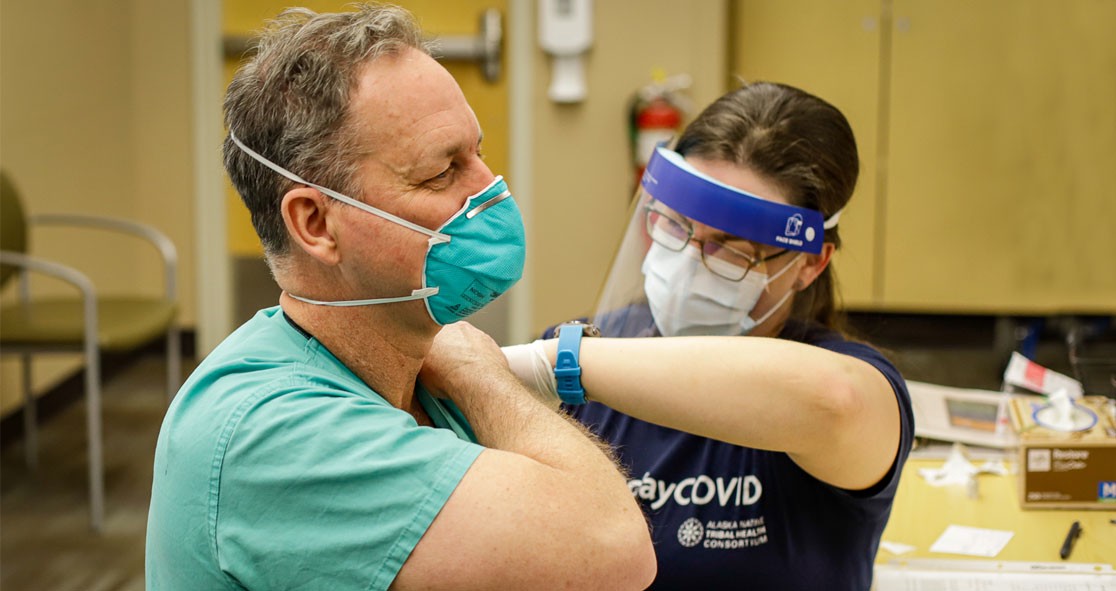A health worker in Alaska experienced a severe allergic reaction after receiving Pfizer-BioNTech’s COVID-19 vaccine, according to The New York Times.
Despite the worker experiencing the reaction, medical experts say the vaccine is safe for the general population.
The Times reported Tuesday that the health worker’s condition stabilized after visiting the hospital.
Last week, two medical workers in the United Kingdom had similar reactions to the vaccine. However, unlike these cases, the Alaskan health worker reportedly did not have a history of allergic reactions to any drugs.
Although these three cases of allergic reactions are concerning, thousands of people have successfully received the vaccine so far, and the risk of allergic reactions is extremely low.
Pfizer’s spokesperson told Forbes, “We don’t yet have all the details of the report from Alaska about a potential serious allergic reaction but are actively working with local health authorities to assess.”
“We will closely monitor all reports suggestive of serious allergic reactions following vaccination and update labeling language if needed,” the spokesperson added.
On November 11, the US Food and Drug Administration (FDA) granted Emergency Use Authorization (EUA) for the Pfizer-BioNTech vaccine. Since then, the federal officials are leaving n stone unturned in distributing the vaccine across the nation.
The agency even released an updated fact sheet about the COVID vaccine that advised patients to check with their doctors for any allergies before taking the shot.
The FDA also recommended that people who have had a severe allergic reaction to the first dose of the vaccine or any component of the vaccine should not get the second dose.
The FDA’s vaccine advisory board meeting urged centers to keep allergy treatments handy wherever the vaccine is given.
Earlier this week, the American College of Allergy, Asthma and Immunology released guidance stating that people with a history of allergy to polyethylene glycol – one of the components of the Pfizer vaccine that is linked to anaphylaxis in the past – should not get the vaccine.
Experts took to social media to assuage people’s concerns about the vaccine.
Infectious disease expert Dr. Dena Grayson said, “These reactions are VERY RARE,” adding that all three health workers who had allergic reactions “survived.”
Former Baltimore City Health Commissioner and CNN medical analyst Dr. Leana Wen said, “Remember that we can treat allergic reactions, it is much harder to treat consequences of COVID-19.” The article was published in Forbes.























